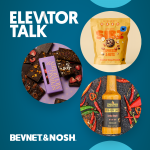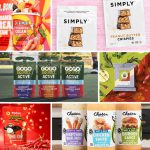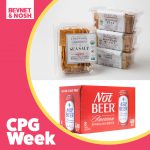iGen: Here’s Why Marketers Should Learn About Generation Alpha
They’re barely out of diapers. But Generation Alpha—children born since 2010—
promises to be the most highly educated, diverse and technologically proficient generation to live so far, predicts Tessa van Asselt, a demographic expert from TrendsActive, a Dutch consultancy.
The name is a logical progression from Gen Z and comes from Australian researcher Mark McCrindle in his book “The ABC of XYZ: Understanding

the Global Generations.” But it is only the current frontrunner in a robust list of monikers for this emerging cohort. Others include ‘iGen’ and ‘Generation Wii,’ which reflect the highly technological nature of the society they are born into, notes McCrindle. Yet names aside, they’re already a force to reckon with; based on the latest U.S. census (or U.S. Census Bureau) figures, Alphas are already a burgeoning powerhouse with over 24.7 million members.
Unlike their predecessors, they will be digital natives by necessity instead of choice, as they live in a world where technology is almost ubiquitous. They may never have landline phones or checkbooks; electronic tablets are replacing teddy bears in their cribs at night; and they will likely text their playmates instead of passing notes. With a wealth of information just a few clicks or swipes away, this generation is going to be highly educated and knowledgeable about the world around them, notes Australia’s Daily Telegraph.
They’re also expected to want for little and have a lot, as they are generally born to older, wealthier, well-educated parents, notes a top Australian news website. This already holds true in the U.S., where nearly 60 percent of couples parenting Gen As are dual-income. Yet these Millennial parents came of age in a difficult economic time, making them more frugal than their Baby Boomer parents. But with Generation Alpha children growing up in a more prosperous environment, they may be on track to become more like their materialistic Boomer grandparents.
They’re also expected to be socially and ecologically conscious thanks to their Millennial parents, who aren’t just willing to settle for rock-bottom prices despite their frugal ways. Research shows Millennials are willing to pay a premium for products made by companies they see as being authentic in espousing these values, including sustainability, according to Nielsen.

Their Moms Matter Most
For now, Generation Alphas are still babies and toddlers, which means their parents will be making most of their buying decisions for at least the next decade. But their moms will be the parent calling the spending shots. Greater income parity and more equality in the workplace might suggest that both sexes matter equally when it comes to shopping, but the data show otherwise.
According to myriad sources, women currently make or influence as much as 85 percent of purchasing decisions and buy over 50 percent of traditionally male products, such as cars, home improvement products and consumer electronics. So not surprisingly, Millennial moms control the majority of buying decisions in the family—a trend that shows no signs of abating anytime soon, says Thimon De Jong, an insights and strategy expert at TrendsActive. With over 16 million Millennial mothers in the U.S., estimates USA Today, the buying power of this group could be as high as $170 billion per year, according to comScore as noted in Forbes.
Another point marketers should keep in mind to sell Millennial moms products for their Alpha offspring is that they have more social media accounts than all other cohorts of moms combined, and they spend far more time online than moms overall, according to Weber Shandwick and KRC Research. They seldom leave the house without their phones in hand, noted a 2012 survey from market researcher Hemispheres, and over 42 percent of these moms use mobile devices such as smartphones to comparison shop.
Parenting Enters the Digital Age
Given their dependence on technology, it’s not surprising to learn that Millennial parents use personalized apps to track and manage their parenting goals, “from breastfeeding to sleep schedules, [to] baby milestones and finding babysitters,” reports USA Today. But most significantly, they tend to study each other’s recommendations in their vibrant social communities on platforms such as Pinterest, Etsy and Twitter before making buying decisions—bypassing childcare experts and pediatricians to rely on online communities of other parents for advice and support, points out Forbes.
What Can Marketers Do To Reach Generation Alpha Parents?
- Be authentic and personalize products. Millennials don’t like to be marketed to, at least not in the traditional sense, says a report from digital marketing agency Moosylvania. Instead, companies must gain the trust of Generation Alpha’s parents by being authentic and nuanced, and creating customized messages and brands tailored to their needs. Also, Millennials are more socially conscious than previous generations and more concerned with making good choices for themselves and their families, so they’re more likely to gravitate toward natural, organic, locally grown and sustainable foods. And finally, with their social engagement and large online communities, moms are especially important. “If Mom believes in what your brand is doing, she’ll be your biggest ally, singing your praises with friends and family, and trumpeting her love for your brand across Facebook, Twitter and more,” maintains Elisa Silver, brand director of the agency 72andSunny, in her blog for Forbes.com.
- Embrace and promote social responsibility. As De Jong describes, women are more likely to be highly concerned for, and aware of, the world they live in and focus on creating a better world for themselves and their families. They also do more volunteer work than men and donate more to charity. So products that appeal to this mindset and sell will be made by companies demonstrating these values, maintains De Jong. Furthermore, products that promise to alleviate some of the stresses of managing a thousand different priorities strike a chord with these busy moms, especially if they offer a way to help their children succeed.
- Don’t ignore the kids. Though they’re still so young, research commissioned by Tetra Pak shows that children wield a great deal of influence in the grocery aisles. When accompanying their parents on shopping trips, they make demands that influence nearly 80 percent of shopping decisions. While this research concerned Generation Z, whose members are ages 5-17, it is also expected to hold true for Gen A. To appeal to this trend, marketers will want to enhance products with innovative packaging and colorful and playful characters for the kids and highlight the nutritional benefits for the over 50 percent of moms who scan packaging as they shop. Demographic expert Tessa van Asselt points to the importance of visual infographics over text-based approaches, mirroring research that shows visual information is far easier to process than text. With Generation Alpha’s expected short attention span, creativity will be more important than ever.
About Suley Muratoglu
Suley Muratoglu, vice president, Marketing & Product Management, Tetra Pak Inc. U.S & Canada, currently runs the company’s presence in core categories, including dairy, beverage and food. Further industry insights from him can be found at www.doingwhatsgood.us. Tetra Pak (tetrapakusa.com) is the world’s leading food processing and packaging solutions company.













